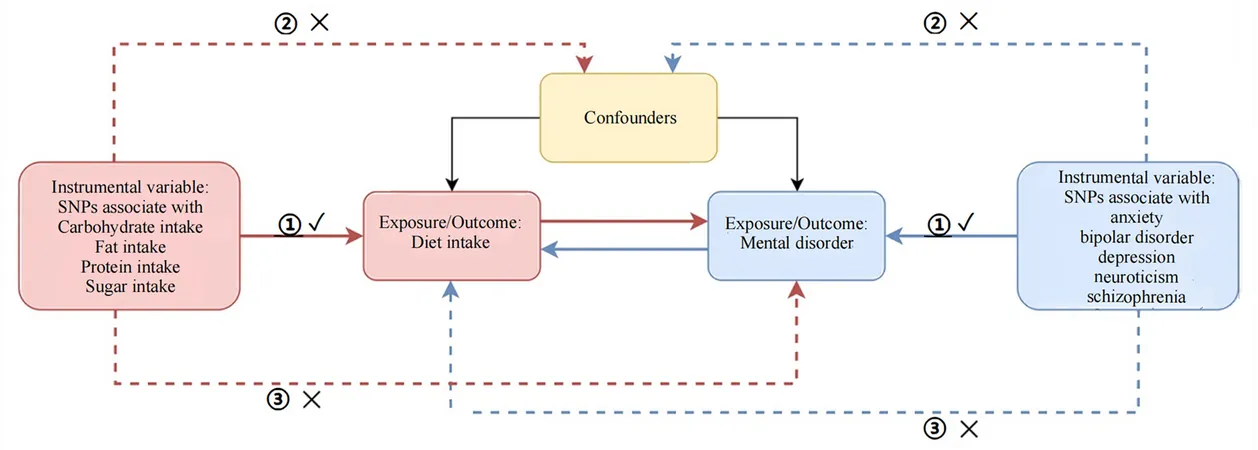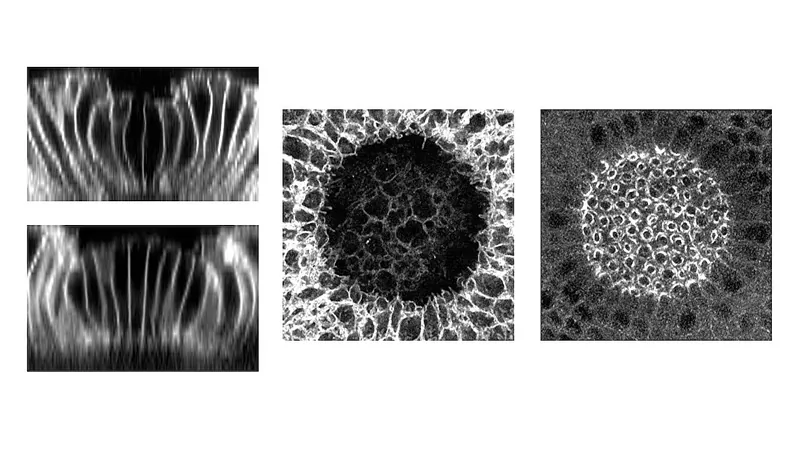
Revolutionary Study Links Diet and Mental Health: Are Your Eating Habits Risking Your Mind?
2025-07-03
Author: Arjun
Unveiling the Hidden Link Between Diet and Mental Disorders
Mental health issues have surged to unprecedented levels, presenting dire public health challenges across the globe. Emerging research suggests that the foods we consume could be significantly influencing our mental well-being. This groundbreaking study utilized bidirectional Mendelian randomization analysis to uncover potential causal relationships between dietary macronutrients and various mental health disorders.
Exploring Diet's Influence on Mental Disorders
Researchers investigated the links between intake of macronutrients—carbohydrates, fats, proteins, and sugars—and mental health disorders including anxiety, bipolar disorder, depression, neuroticism, and schizophrenia. Utilizing data from the UK Biobank and five additional datasets, they employed sophisticated statistical methods to assess how these dietary components might affect our mental health.
Key Findings That Could Change Your Plate!
The results were eye-opening: a higher intake of fats and proteins was associated with a significantly increased risk of anxiety, with odds ratios indicating over three times the risk for those consuming high amounts. Additionally, high carbohydrate consumption was linked to bipolar disorder, while protein intake appeared to have a strong correlation with depression.
Interestingly, the study also found that individuals struggling with neuroticism tended to consume more sugar. Meanwhile, schizophrenia was marked by a decrease in all types of macronutrients, suggesting that those with this disorder may have a diminished appetite overall.
Mental Disorders: A Culprit for Unhealthy Eating?
The research took an intriguing turn when it examined the reverse relationship, exploring how mental disorders might influence dietary habits. Neuroticism was found to be a factor in higher sugar intake, while schizophrenia patients showed reduced consumption of all macronutrients.
A Call for Change: Rethinking Our Diets for Better Mental Health
Given the alarming rise in mental health conditions affecting millions worldwide, this study underscores the necessity of examining our diets more closely. While unhealthy eating patterns have traditionally been viewed as a consequence of mental illness, the findings suggest that diet could also be a contributing factor to many psychiatric conditions.
Global Implications of Dietary Choices on Mental Health
With the prevalence of mental disorders climbing to 13% globally, understanding the dietary influences on these conditions has never been more crucial. The interplay between what we eat and how we feel represents a hopeful frontier for new interventions in mental health treatment.
A New Era for Mental Health Interventions?
As researchers delve deeper into the complex relationship between diet and mental illness, it’s clear that rethinking our nutritional habits may offer a pathway not only to improved physical health but also to enhanced mental wellness. For those seeking to bolster their mental health, dietary adjustments may be the key to unlocking a healthier mind.





 Brasil (PT)
Brasil (PT)
 Canada (EN)
Canada (EN)
 Chile (ES)
Chile (ES)
 Česko (CS)
Česko (CS)
 대한민국 (KO)
대한민국 (KO)
 España (ES)
España (ES)
 France (FR)
France (FR)
 Hong Kong (EN)
Hong Kong (EN)
 Italia (IT)
Italia (IT)
 日本 (JA)
日本 (JA)
 Magyarország (HU)
Magyarország (HU)
 Norge (NO)
Norge (NO)
 Polska (PL)
Polska (PL)
 Schweiz (DE)
Schweiz (DE)
 Singapore (EN)
Singapore (EN)
 Sverige (SV)
Sverige (SV)
 Suomi (FI)
Suomi (FI)
 Türkiye (TR)
Türkiye (TR)
 الإمارات العربية المتحدة (AR)
الإمارات العربية المتحدة (AR)